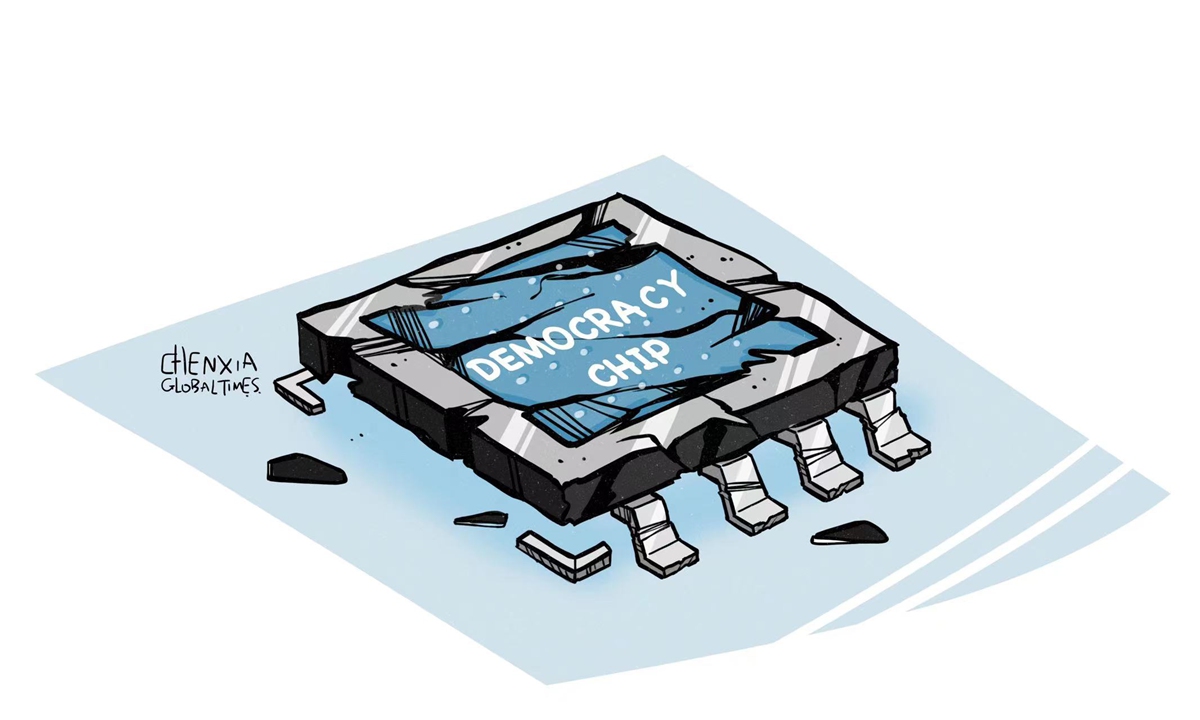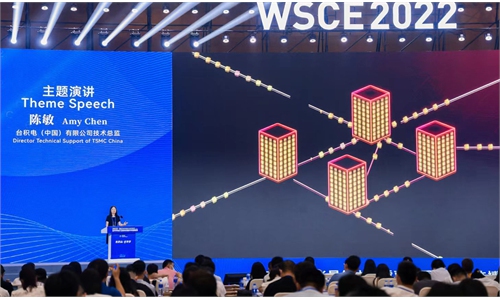
Illustration: Chen Xia/Global Times
Taiwan regional leader Tsai Ing-wen on Monday claimed that the island will build sustainable chains for "democracy chips" in a meeting with Eric Holcomb, the governor of the US state of Indiana, Reuters reported.First and foremost, China has consistently and firmly opposed any form of official exchanges between the Taiwan region and countries having diplomatic ties with China. As an inalienable part of China, the island of Taiwan is completely not qualified to participate in any international organizations whose memberships were limited to sovereign states.
On the issue of semiconductors, the so-called sustainable chains for "democracy chips" sound like an absurd political stunt. It is a daydream for Taiwan secessionist forces to try to use the island's semiconductor sector as a political tool to advance its separatist deeds. If anyone wants to work with Taiwan secessionist forces to be an ally for the so-called "democracy chips," it will be an extremely dangerous game.
With the so-called "democracy chips" supply chain as a political slogan, Taiwan secessionist forces just want to use the island's chip resources as a bargaining chip in exchange for their own political self-interests.
There is no denying that Taiwan's semiconductor manufacturing sector, represented by Taiwan Semiconductor Manufacturing Corporation (TSMC), plays a significant role in the global semiconductor industrial chain. But in the current era of globalization, no company, not even TSMC, has the absolute advantage in the whole industry chain and can survive without the upstream and downstream industry chain.
The mainland is the world's largest consumer of semiconductors because of the size of its electronics market and its status as the "world's factory." Consumer market is always a life-and-death matter for any enterprise, and semiconductor manufacturer is no exception.
The Democratic Progressive Party (DPP) authorities may think Taiwan's semiconductor manufacturing sector is a trump card that can be used to advance its secessionism and win support from its so-called "democratic partners," but they have largely overestimated the island's chip manufacturing sector. The DPP authorities and Taiwan secessionist forces must wake up from such a "chip dominance" dream.
The ugly political stunt of "democracy chips" is the latest example of the DPP's efforts to use the island's chip resources as a political tool, a move which is dangerous to the development of Taiwan's semiconductor manufacturing sector.
Taiwan's semiconductor manufacturers are facing fierce competition from enterprises in Japan and South Korea. And once the global market enters a downward cycle, competition will become more intense. Samsung Electronics, the world's largest memory chip maker, said in July that it expects mobile and PC chip demand would continue to weaken as macroeconomic uncertainties persist, according to Reuters. At this juncture, Taiwan's semiconductor manufacturers' competitiveness will surely be weakened if they get caught up in geopolitical tension stirred up by the DPP authorities and external interference forces.
At present, the Biden administration hopes the passage of the CHIPS Act can boost US semiconductor manufacturing capability and rope in global players in the chip supply chain to contain China's rise in the sector. The political slogan of "democracy chips" caters to the US' Cold War mentality, but will only hurt the island's own development.
The author is a reporter with the Global Times. bizopinion@globaltimes.com.cn



